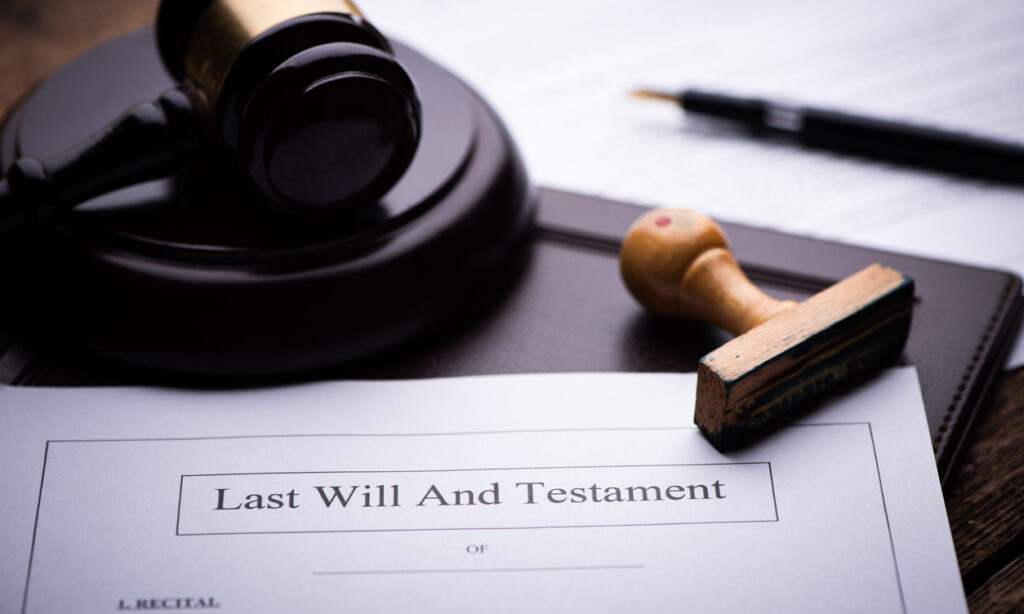When a charity is named as a beneficiary in a will, it can be a powerful testament to the impact of its work. However, legacies can be challenged, potentially reducing or invalidating the gift.
Although solicitors will assist you in resolving these disputes, gathering the relevant evidence to advise and support you, providing them with the right information early on can make a significant difference – helping the solicitor to assess the merits of the claim efficiently and advise your charity in a cost-effective manner.
General information – useful for all claims:
To help your solicitor build a clear picture of the dispute, it helps to provide:
- Details of all parties involved (names, ages, addresses) for the purpose of due diligence and context.
- A summary of the background and events leading up to the dispute.
- A copy of the will (if applicable), which can be obtained online for a nominal fee here.
- The grant of probate and the date it was granted (if applicable) – grants of probate can also be obtained online for a nominal fee here.
- Key correspondence to date – such as any letters or emails that your charity has that are relevant to the dispute, particularly any letters of claim or proposals for settlement.
- Details of the estate’s assets and value- including:
- any properties the deceased owned (Zoopla and other sites can give a rough idea of valuation);
- whether any properties were owned with anyone else (i.e. as joint tenants or as tenants in common);
- any mortgages or charges over the properties; and
- who occupies properties forming part of the estate. Official copy entries can be obtained from the Land Registry for a nominal fee of £3 via their website.
- Financial information – such as any known debts of the estate that might impact its value.
Additional Information required for specific claims
Inheritance (Provision for Family and Dependants) Act 1975
Certain categories of people may have a claim under the Inheritance Act if the will does not make “reasonable financial provision” for them.
The following information/documentation can help your solicitor provide an initial assessment of the strength of the claim and give an indication of what the claim may be worth:
- Grant of probate – it is important to know whether a grant of probate has been obtained, as claims under the Inheritance Act are subject to a six-month limitation period, starting from the date of the grant of probate. They also give an indication of the value of the estate.
- Information about the claimant’s financial needs and resources – for example, are they working? Are they in receipt of benefits? Have they made any reference to this in correspondence either informally or within a formal letter of claim?
- Evidence that the deceased person was maintaining, or had an obligation to maintain, the claimant – bank statements can help determine whether a claimant was being supported by the deceased financially. Other family members or beneficiaries may have made some comments.
- Whether you are aware of any other individuals who may have grounds to bring a claim. For example, a spouse, child or cohabitee who is not named in the will.
- Information about any physical or mental disabilities the claimant may have.
- Any other relevant conduct or circumstances that you think may affect the claim.
Will challenge claims
If the validity of the will itself is being challenged, the following documents are particularly helpful at the beginning of an instruction:
- A copy of the will (and the will file if possible).
- Confirmation of whether a caveat has been lodged against the estate – it is quick and easy to contact the Probate Registry by email to ask if a caveat has been lodged, provided you include the deceased person’s name, date of death and last known address.
- Details of any caveat entered against the estate – specifically the expiry date and the identity of the person who entered it.
- Details of any steps already taken by personal representatives to distribute the estate – are you aware if properties are on the market.
- Any available medical records of the deceased – these are particularly useful when the deceased person’s testamentary capacity is in question.
- Any Larke v Nugus requests made or Larke v Nugus statements received.
We appreciate that not all this information may be available to you at the outset, if indeed any. However, legacy administration teams often liaise with executors and beneficiaries early on, sometimes for many months, before a formal claim is notified. During that time, they will gather a lot of relevant information about the estate and the parties, during phone calls, emails etc. with the executors and beneficiaries that may prove useful.
It is important that you have a mechanism to capture such information e.g. the legacy officer may take a detailed note of a call and for it to be saved on the file, in case it is needed later.
How we can help
Legacy disputes can be complex and emotionally charged, but with the right preparation, charities can help their legal representative respond as quickly as possible. Ensuring that information is captured and shared with your solicitor at an early stage helps facilitate a smoother process and helps to protect the legacy intended for your cause.
If you have any questions or need further guidance, please don’t hesitate to reach out to our team of trusts and estate dispute solicitors for tailored advice.








